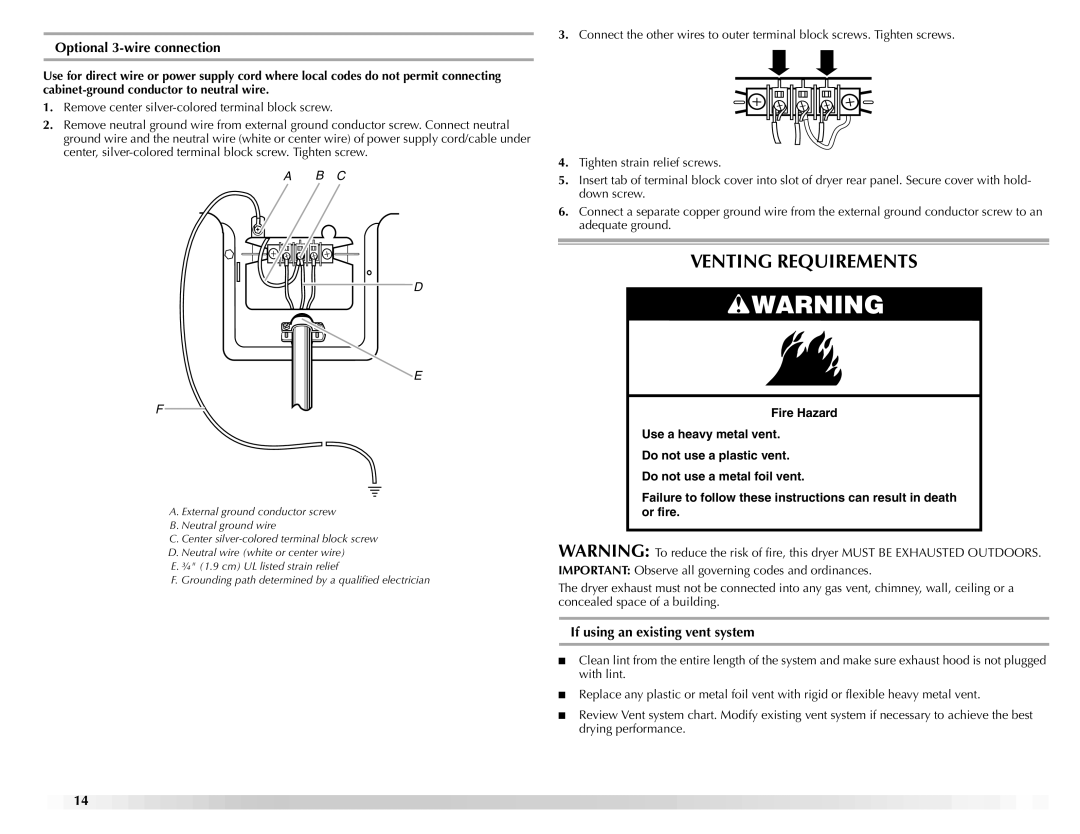
Optional 3-wire connection
Use for direct wire or power supply cord where local codes do not permit connecting
1.Remove center
2.Remove neutral ground wire from external ground conductor screw. Connect neutral ground wire and the neutral wire (white or center wire) of power supply cord/cable under center,
A B C
![]() D
D
E
F ![]()
A. External ground conductor screw
B. Neutral ground wire
C. Center
D. Neutral wire (white or center wire)
E. ¾" (1.9 cm) UL listed strain relief
F. Grounding path determined by a qualified electrician
3.Connect the other wires to outer terminal block screws. Tighten screws.
4.Tighten strain relief screws.
5.Insert tab of terminal block cover into slot of dryer rear panel. Secure cover with hold- down screw.
6.Connect a separate copper ground wire from the external ground conductor screw to an adequate ground.
VENTING REQUIREMENTS
![]() WARNING
WARNING
Fire Hazard
Use a heavy metal vent.
Do not use a plastic vent.
Do not use a metal foil vent.
Failure to follow these instructions can result in death or fire.
WARNING: To reduce the risk of fire, this dryer MUST BE EXHAUSTED OUTDOORS.
IMPORTANT: Observe all governing codes and ordinances.
The dryer exhaust must not be connected into any gas vent, chimney, wall, ceiling or a concealed space of a building.
If using an existing vent system
■Clean lint from the entire length of the system and make sure exhaust hood is not plugged with lint.
■Replace any plastic or metal foil vent with rigid or flexible heavy metal vent.
■Review Vent system chart. Modify existing vent system if necessary to achieve the best drying performance.
14
